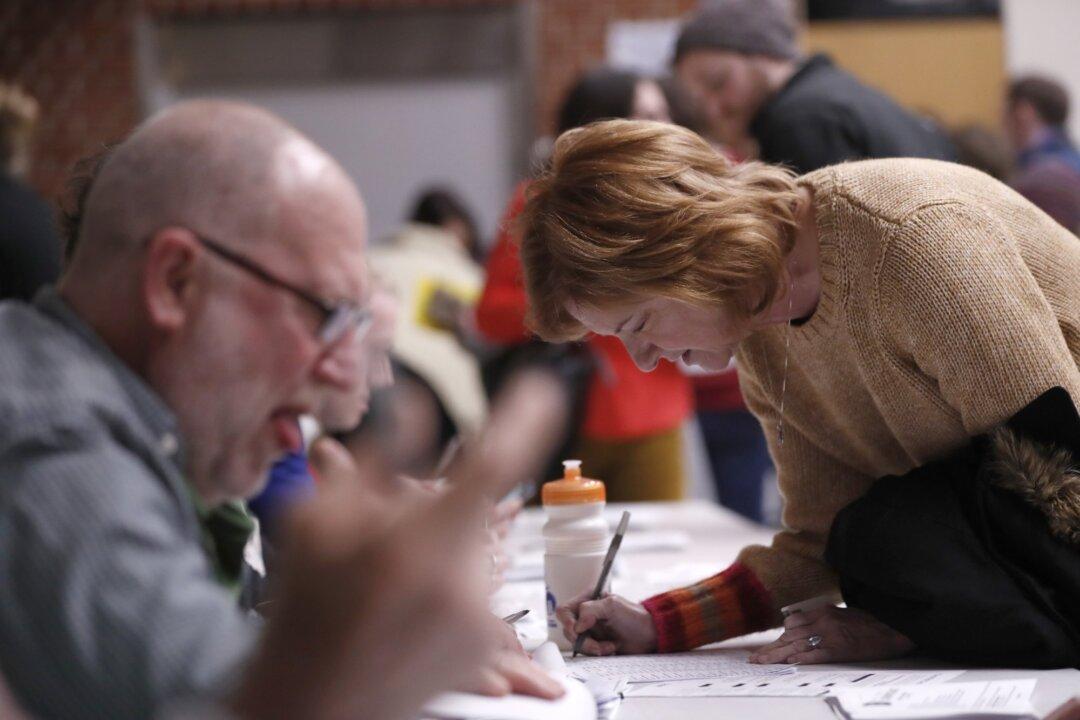IOWA CITY, Iowa—Iowa’s Democratic caucuses on Feb. 3 kicked off primaries across the nation. Iowa’s caucus results are considered a bellwether for who could win the party’s 2020 presidential nomination. They’re the first glimpse at how nominees fare in a real vote, not just in the polls.
The Iowa Democratic Party experienced a major delay in tallying results reportedly due to a malfunction with its new reporting app.





